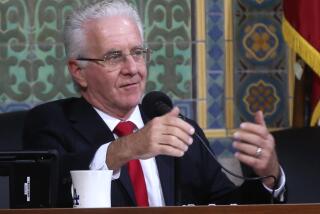First Mile of a Long Journey
When congressional leaders allow a simple yes-or-no vote on campaign finance reform, the results are overwhelming. Take the 385-39 vote in the House Wednesday for a measure that would outlaw secret contributions to a new form of political committee organized under Section 527 of the Internal Revenue Code. The Senate then voted early Thursday, 92 to 6, to send the measure on to President Clinton for his expected signature. The bill requires identification of donors to the so-called 527 committees, which primarily finance political issue ads on television.
The massive majorities supporting the bill reflect a demand by American voters that Congress impose some control on the excess of money in election campaigns. Baldly ignoring the public’s will, some congressional leaders continue to stand in the way of comprehensive campaign finance reform, arguing that the only reform necessary is disclosure of the sources of political money.
The House bill that passed this week demands disclosure, but that did not stop Sen. Mitch McConnell (R-Ky.), who leads the Senate’s crusade against reform, from condemning the bill by saying, “It will take us down the constitutionally questionable path of requiring disclosure by advocacy groups.” Is that supposed to mean that openness is bad and therefore secrecy is good? This is the sort of tortured drivel that stands in the way of Sen. John McCain (R-Ariz.) and other campaign finance reformers at every turn.
This week’s victory was an important milestone, the first true campaign finance reform in more than 20 years. What’s needed now is a ban on unlimited “soft money” contributions, used to finance political attacks in violation of the spirit of present campaign finance law. The danger is that McConnell and his supporters will boast that they have now passed campaign reform for the year. But that’s not even close. The job has just begun.


